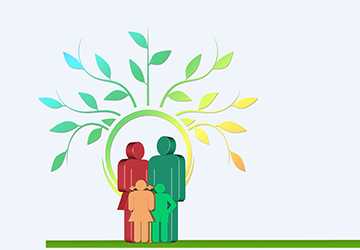Top 10 Essential Skills for Modern Living
Navigating life in today's fast-paced hustle and bustle world requires more than just the basics. While knowing how to tie your shoes or cook a simple meal is undoubtedly convenient, ten essential skills stand out in the modern world. These aren't the types of skills you'd find in a traditional manual, but they are the unsung heroes that can make a big difference in your daily life.

1. Digital Competencies: Navigating the Virtual Jungle
Let's be honest: the digital age has arrived. From smartphones to smart homes, our lives are increasingly intertwined with technology. Digital literacy means more than knowing how to text or post a status update. It's about understanding the digital environment and using it to your advantage. Start with the basics: Learn how to use email, surf the Internet, and stay safe online. It's like learning to ride a bike in a virtual world. As you progress, explore social media, learn basic coding concepts, and use digital collaboration tools. Being digitally literate means something other than becoming a tech expert; it means having the confidence to navigate the virtual jungle without getting lost.
2. Critical Thinking: A GPS for Life’s Maze
Life is a maze, and critical thinking is your GPS. In a world bombarded with information, the ability to analyze, evaluate and synthesize is vital. Critical thinking is not about memorizing facts but about questioning them. It's about why and how, not just what. To develop critical thinking, you must improve your problem-solving ability, make decisions, and think creatively. Start by questioning assumptions, considering alternative perspectives, and connecting the dots. It is essential not to have all the answers but to know how to find them. Critical thinking is a compass that helps you navigate the twists and turns of life while making informed decisions.
3. Adaptability: Dancing in the rain of change
Change is the only constant in life; adaptability is the dance we dance in the rain. Adaptability is not about becoming a chameleon and changing yourself; It's all about trimming the sail when the wind changes. In a rapidly evolving world, adaptability is a survival skill. Start by embracing change instead of fearing it. Learn to be flexible, open and flexible. Develop a growth mindset and view challenges as opportunities to learn and grow. Remember: Bamboo that bends is more potent than oak that resists. Adaptability is about staying true to your core values while accepting the changing pace of life.
4. Emotional Intelligence: The Art of Whispering
Emotional intelligence is the secret to making relationships thrive in a world driven by connection. It is the ability to understand, manage, and express emotions while developing empathy for others. Think of it as the art of whispering to people—the silent language of understanding emotions. Start by tuning into your feelings and recognizing how they influence your behaviour. Develop empathy by putting yourself in others' shoes and understanding their perspectives. Practice active listening, and consider the power of a genuine smile. Emotional intelligence is the glue that binds us together in our personal and professional relationships, fostering a culture of understanding and collaboration.
5. Financial Literacy: Mastering the Money Game
Money makes the world go round, and knowing how to manage it is a skill that shouldn't be overlooked. Financial literacy is not about becoming a Wall Street expert but mastering the basics of budgeting, saving and investing, and understanding the financial landscape. First, create a budget—understand where your money comes from and where it's going. Learn more about the power of compound interest and explore different investment options. Learn the basics of credit, and don't be afraid to ask questions about financial topics. Financial literacy is the key to making smart money decisions and ensuring a stable and secure future.

6. Time management: dealing with life’s problems
Time is a precious commodity, and using it effectively is a skill that can significantly impact the quality of your life. Start by prioritizing tasks, setting realistic goals, and breaking larger projects into manageable chunks. Use the Pomodoro Technique or other time-blocking methods to stay focused and productive. Time management is the art of balancing work, play, and personal activities and ensuring that each piece of your life's puzzle fits seamlessly into the bigger picture.
7. Interpersonal Communication: The Art of Connection
In a world filled with communication, connecting meaningfully with others is crucial. Interpersonal communication involves more than words; it involves active listening, body language, and understanding the nuances of human interaction. Practice speaking clearly and concisely, pay attention to nonverbal cues, and encourage empathy. The art of connection is a two-way street, building solid relationships that become the foundation for a fulfilling personal and professional life.
8. Solve problems: Untie the knots in life
Life is full of challenges and confusion, and solving problems efficiently is a skill that cannot be overemphasized. Solve problems with a systems thinking approach—identify problems, think about solutions, and evaluate possible outcomes. Don't be afraid to try and learn from successes and failures. Problem-solving is a dynamic skill that can be developed through practice and help you deal with life's complex challenges.
9. Health and Wellness Management: Cultivate Your Greatest Asset
In the chaos of modern life, taking care of your physical and mental health is crucial. Health and wellness management refers to developing habits that promote a balanced and healthy lifestyle. Make sure you exercise regularly, get enough sleep, and eat nutritiously. Practice mindfulness and stress management techniques to support your mental health. Remember, your happiness is your greatest asset, and investing in this happiness will pay dividends in increased energy, resilience, and overall life satisfaction.
10. Cultural Competence: Navigating a Global Society
In an increasingly interconnected world, cultural competency is a skill that promotes understanding and cooperation among diverse communities. It's about respecting and valuing different cultural perspectives, beliefs and practices. Actively expand your cultural awareness by being exposed to different traditions, cuisines, and customs. Embrace diversity and inclusion in personal and professional interactions and recognize the richness that diverse perspectives bring to life.
Conclusion
Modern life requires more than just the ability to survive; it requires thriving. These essential skills—digital literacy, critical thinking, adaptability, emotional intelligence, and financial literacy—are the tools to help you survive and thrive in today's dynamic environment. So, embark on a learning journey, stay curious, and master these skills for the exciting adventures of modern life.





